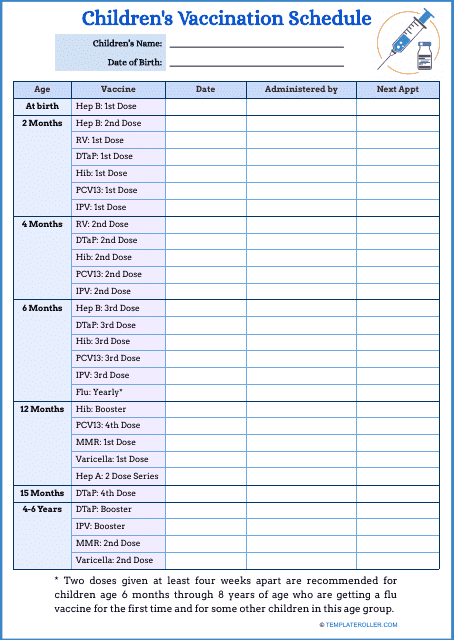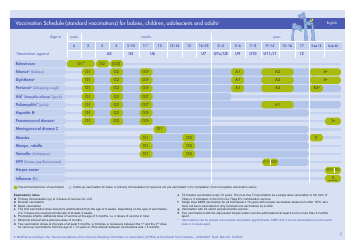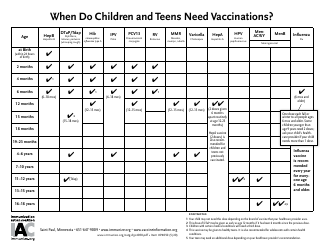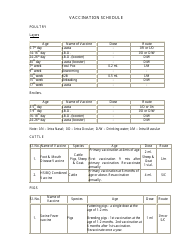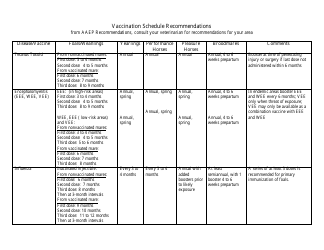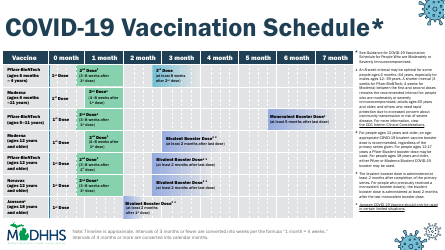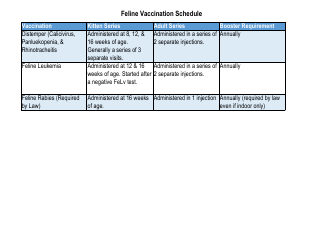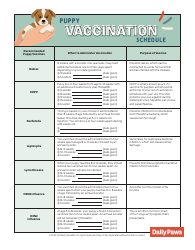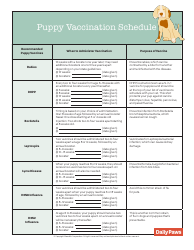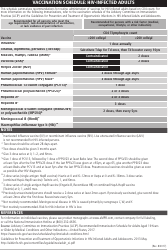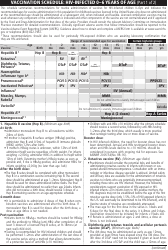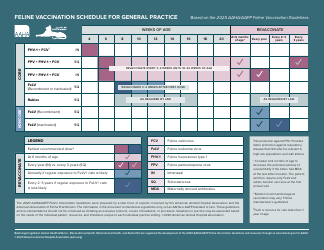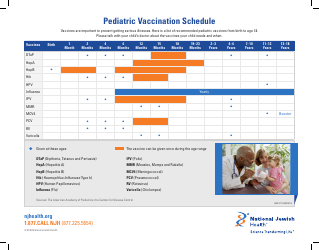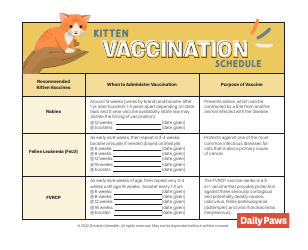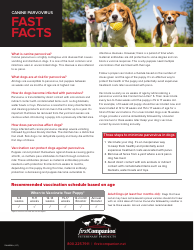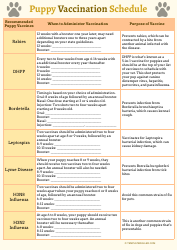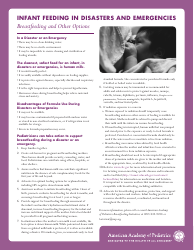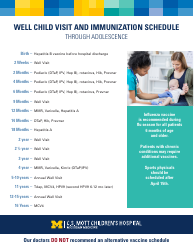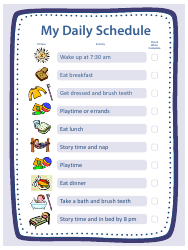Children's Vaccination Schedule Template
Children's Vaccination Schedule: What Is It?
A Children's Vaccination Schedule refers to a list of the average ages of a child and the vaccines they must be given to safeguard them from diseases.
Alternate Name:
- Child's Immunization Schedule.
Make sure you consult with your healthcare provider every time you bring your kid for a physical examination - ask them when your child can get vaccinated against an array of diseases and follow their instructions. This way, you will be able to protect the future generation from lethal diseases and infections that cause numerous health complications - immunization remains the most effective and safest method to prevent the disease from developing and spreading further.
There are schedules designed for kids whose parents may have chronic conditions as well as modified vaccination timelines for children that take medications whose side effects weaken their immune systems - talk to your medical provider to figure out what is the best immunization option for your child.
Download a Children's Vaccination Schedule template through the link below.
What Is the Vaccination Schedule for a Child?
Here is what you need to know if you have a child and want to protect them against serious diseases that lead to poor health and sometimes even lethal outcomes - ensure your kid's immune system is safeguarded against illnesses that can be prevented with the help of an injection:
-
Pay close attention to the health of your baby until they are fifteen months old . There are vaccines they need to get when they are born (hepatitis B), vaccines administered during the first year of life in two or three phases (tetanus, rotavirus), and vaccines highly recommended when the child is twelve months and older (measles, mumps). Obviously, the pediatrician will look at the medical history of your baby and let you know what the recommended immunization age is in case there are any reasons to wait for the first dose of vaccine.
-
If the child was not vaccinated at a recommended time, you have a chance to catch up - do not worry about being late, it does not mean vaccination is impossible . For example, a child can be protected against papillomavirus with a vaccine administered when they are nine years and older. Consult with your doctor to know the intervals between doses to ensure the child's health is safe. Some of the vaccines are administered when the child is in their teens - the schedules list the minimum age, so even a sixteen- or seventeen-year-old patient can receive much-needed protection whatever the reasons for the delay are, yet it is important to vaccinate the adolescent as soon as possible.
-
Use a risk factors that increase the chances to get sick or infected . Apply a similar approach when there are higher odds of an adverse reaction or the vaccine should not be administered although all these cases are quite limited - for instance, many pregnant mothers are not vaccinated against papillomavirus and rotavirus if there are immunocompromised.
Still looking for a particular template? Take a look at the related templates and forms below:
